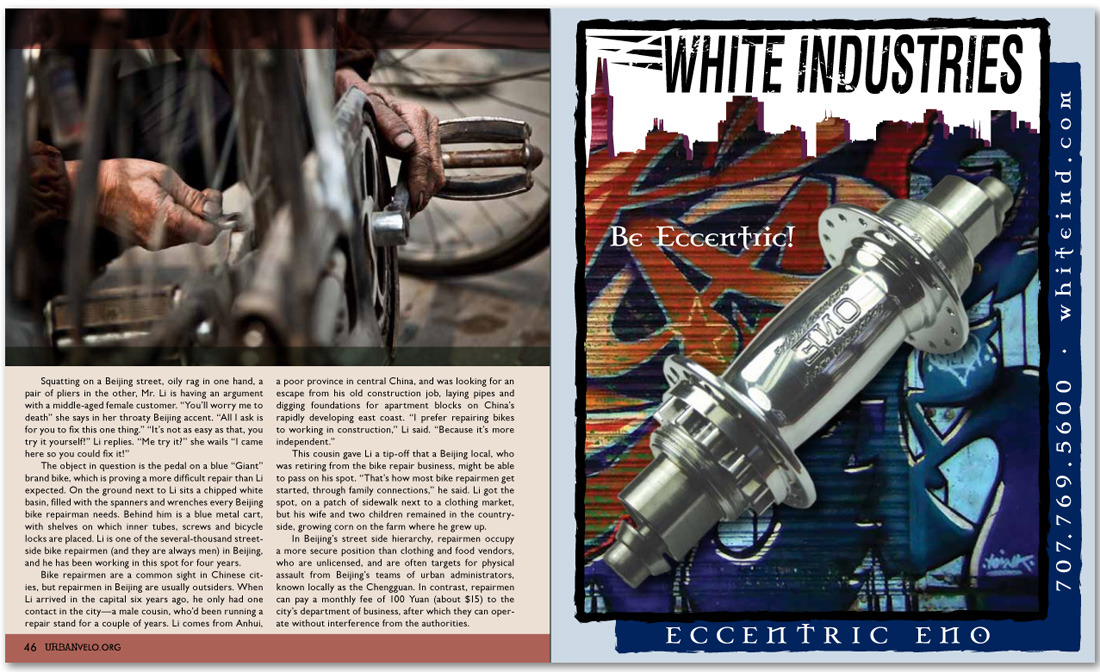


Squatting on a Beijing street, oily rag in one hand, a pair of pliers in the other, Mr. Li is having an argument with a middle-aged female customer. “You’ll worry me to death” she says in her throaty Beijing accent. “All I ask is for you to fix this one thing.” “It’s not as easy as that, you try it yourself!” Li replies. “Me try it?” she wails “I came here so you could fix it!”
The object in question is the pedal on a blue “Giant” brand bike, which is proving a more difficult repair than Li expected. On the ground next to Li sits a chipped white basin, filled with the spanners and wrenches every Beijing bike repairman needs. Behind him is a blue metal cart, with shelves on which inner tubes, screws and bicycle locks are placed. Li is one of the several-thousand streetside bike repairmen (and they are always men) in Beijing, and he has been working in this spot for four years.
Bike repairmen are a common sight in Chinese cities, but repairmen in Beijing are usually outsiders. When Li arrived in the capital six years ago, he only had one contact in the city—a male cousin, who’d been running a repair stand for a couple of years. Li comes from Anhui, a poor province in central China, and was looking for an escape from his old construction job, laying pipes and digging foundations for apartment blocks on China’s rapidly developing east coast. “I prefer repairing bikes to working in construction,” Li said. “Because it’s more independent.”
This cousin gave Li a tip-off that a Beijing local, who was retiring from the bike repair business, might be able to pass on his spot. “That’s how most bike repairmen get started, through family connections,” he said. Li got the spot, on a patch of sidewalk next to a clothing market, but his wife and two children remained in the countryside, growing corn on the farm where he grew up.
In Beijing’s street side hierarchy, repairmen occupy a more secure position than clothing and food vendors, who are unlicensed, and are often targets for physical assault from Beijing’s teams of urban administrators, known locally as the Chengguan. In contrast, repairmen can pay a monthly fee of 100 Yuan (about $15) to the city’s department of business, after which they can operate without interference from the authorities.